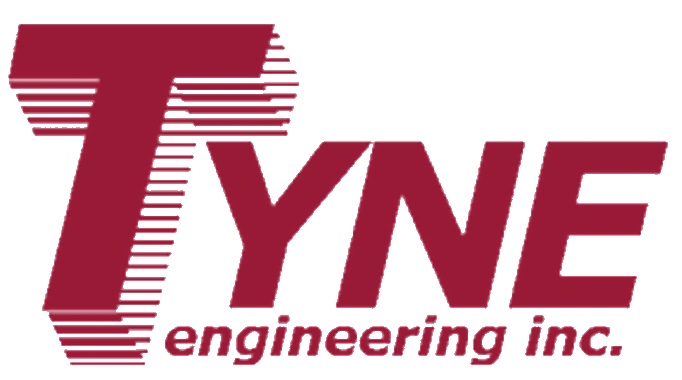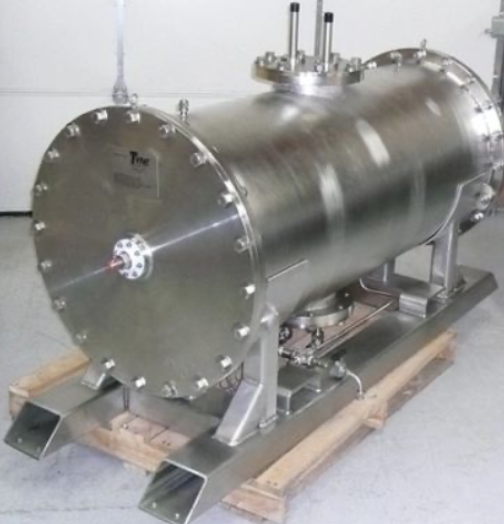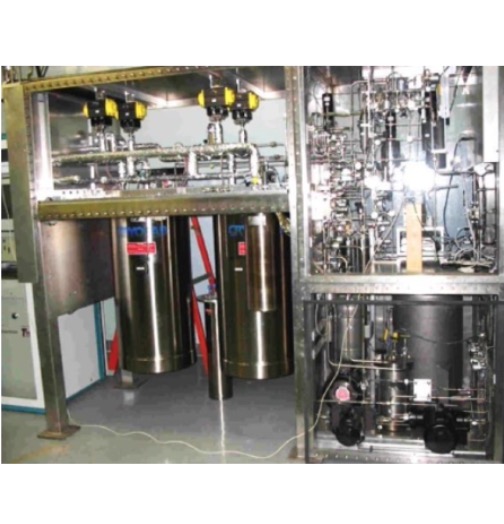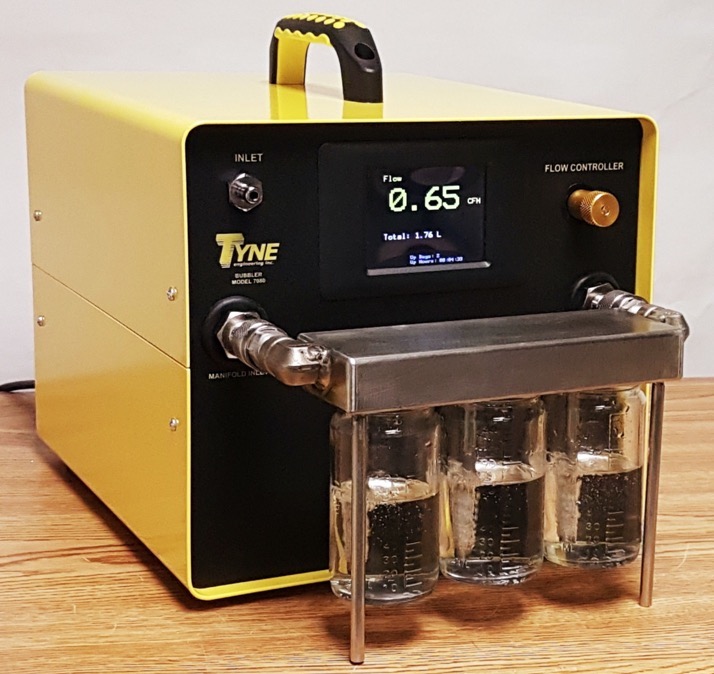
Electrolyzer
Model 7031- ELEC-001
Electrolysis is an essential part of the cycle of removing tritium or separating hydrogen isotopes in light or heavy water or from organic materials.
- Tritium-compatible electrolyzer is leak tight (10-8 cc/sec helium or better).
- Safe (low pressure of less than 150 psig).
- Low inventory.
- No pump or compressor required.
- Hydrogen produced on demand.
Electrolyzers are now being used as part of the cycle for tritium removal; they electrolyze water to obtain the gaseous hydrogen isotopes which can then be separated in an isotopic separation system. Conventional electrolyzers used for the production of hydrogen perform the process well, but need considerable modification to make then suitable for use with tritium. For example, the piping system leak tightness in conventional electrolyzers is inadequate for a tritium. The use of certain elastomers makes it unsuitable. Vessels have to be redesigned to meet the tighter requirements of tritium, and valves and fittings have to be replaced. Tyne has provided the tritium expertise required to modify the electrolyzer on three occasions. This has resulted in the electrolyzer manufacturer performing conceptual design, supplying the cell and controls system, and Tyne carrying out the detailed design, manufacturing all of the vessels and supplying the valves and fittings.
The main concern of electrolysis of tritiated water is the longevity of the cell after being subjected to radiation. The electrolysis cells worked on by Tyne have been able to produce about 10 m3 per day of hydrogen, though larger units are possible.
light and heavy water applications
active nuclear facilities
SMR, MSR Research Facilities
fusion laboratories
active waste and decommissioning facilities


Related Tritium Collection Systems
Improving tritium management by designing and manufacturing extraction and removal technologies and integrated systems.














